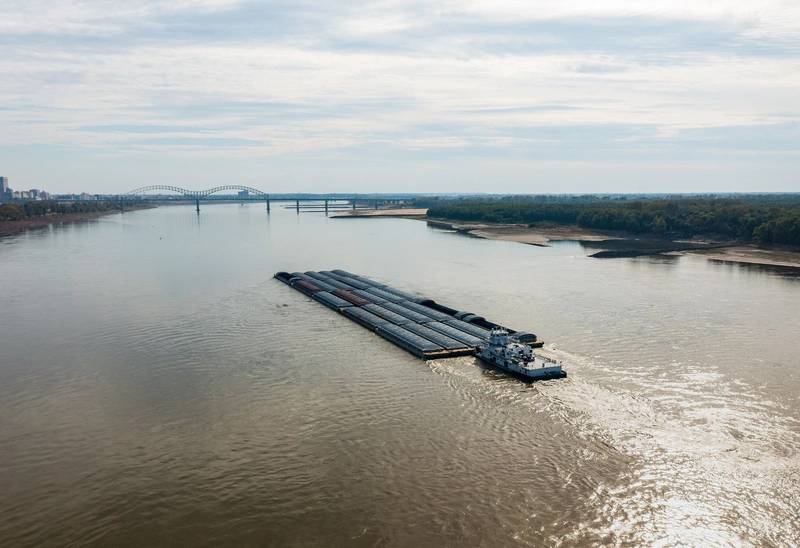Low Water Hampers Barge Shipping on the Mississippi River
Low water conditions have led to several barges running aground along a key stretch of the lower Mississippi River, the U.S. Coast Guard told Reuters on Wednesday, just as the busiest U.S. grain export season gets underway.
Low water levels are slowing export-bound barge shipments of grain and oilseeds from the Midwest farm belt for a third straight year, making U.S. exports less competitive in a world market awash in supplies - just as farmers are set to harvest a record soy and large corn crop and as prices hover near four-year lows.

The U.S. Coast Guard said in an email it has received reports and responded to several groundings over the last week along the Greenville-Vicksburg sections of the lower Mississippi River.
American Commercial Barge Line warned that customers should expect one to two day delays for river shipments "due to reduced navigable space in certain areas," the company said on its website.
Sandbars are already starting to show on the Mississippi River at the Memphis, Tennessee, river gauge, according to barge sources. Last October, this stretch of the river fell to an all-time low of -12.04 feet, according to the National Oceanic and Atmospheric Administration's National Water Prediction Service.
The water level at Memphis is lower than it was last year: It is forecast to drop to -7.5 feet by Sept. 18, NOAA data shows.
Towing and draft restrictions have been rolled out, which are limiting how many barges can move and how much volume can be loaded onto them, said Mike Steenhoek, executive director of the Soy Transportation Coalition. If conditions worsen, the Coast Guard said it may implement further vessel and tow restrictions.
Barge rates are soaring - making it more expensive for overseas buyers to source U.S. grain. Rates for barges coming from the St. Louis, Missouri, area were 65% higher in late August than the three-year average, according to Steenhoek and USDA data.
Such low river levels come despite heavy rains during this year's growing season, which resulted in flooding and excessively wet fields across wide swaths of the northwestern Midwest.
But now, abnormal dryness and drought conditions are intensifying across the southern Plains and Tennessee and Lower Mississippi Valleys, creating a rapidly developing flash drought situation, according to the U.S. Drought Monitor.
"The secret of our success on the global market has always been lower transportation costs," Steenhoek said. "This further diminishes our competitive position."
(Reuters - Reporting By P.J. Huffstutter. Additional reporting by Tom Polansek; Editing by Aurora Ellis)
